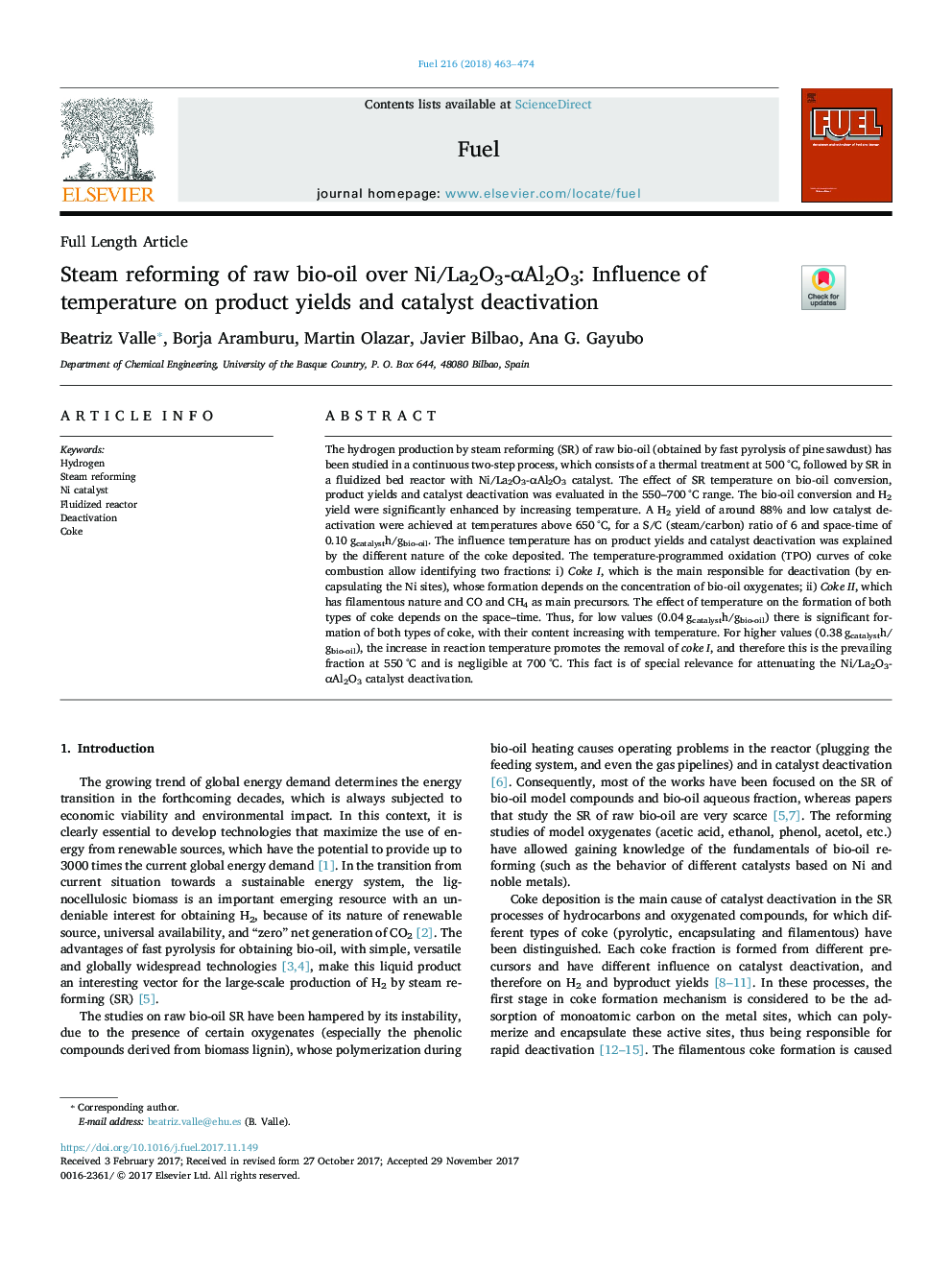| کد مقاله | کد نشریه | سال انتشار | مقاله انگلیسی | نسخه تمام متن |
|---|---|---|---|---|
| 6632182 | 1424948 | 2018 | 12 صفحه PDF | دانلود رایگان |
عنوان انگلیسی مقاله ISI
Steam reforming of raw bio-oil over Ni/La2O3-αAl2O3: Influence of temperature on product yields and catalyst deactivation
دانلود مقاله + سفارش ترجمه
دانلود مقاله ISI انگلیسی
رایگان برای ایرانیان
کلمات کلیدی
موضوعات مرتبط
مهندسی و علوم پایه
مهندسی شیمی
مهندسی شیمی (عمومی)
پیش نمایش صفحه اول مقاله

چکیده انگلیسی
The hydrogen production by steam reforming (SR) of raw bio-oil (obtained by fast pyrolysis of pine sawdust) has been studied in a continuous two-step process, which consists of a thermal treatment at 500â¯Â°C, followed by SR in a fluidized bed reactor with Ni/La2O3-αAl2O3 catalyst. The effect of SR temperature on bio-oil conversion, product yields and catalyst deactivation was evaluated in the 550-700â¯Â°C range. The bio-oil conversion and H2 yield were significantly enhanced by increasing temperature. A H2 yield of around 88% and low catalyst deactivation were achieved at temperatures above 650â¯Â°C, for a S/C (steam/carbon) ratio of 6 and space-time of 0.10â¯gcatalysth/gbio-oil. The influence temperature has on product yields and catalyst deactivation was explained by the different nature of the coke deposited. The temperature-programmed oxidation (TPO) curves of coke combustion allow identifying two fractions: i) Coke I, which is the main responsible for deactivation (by encapsulating the Ni sites), whose formation depends on the concentration of bio-oil oxygenates; ii) Coke II, which has filamentous nature and CO and CH4 as main precursors. The effect of temperature on the formation of both types of coke depends on the space-time. Thus, for low values (0.04â¯gcatalysth/gbio-oil) there is significant formation of both types of coke, with their content increasing with temperature. For higher values (0.38â¯gcatalysth/gbio-oil), the increase in reaction temperature promotes the removal of coke I, and therefore this is the prevailing fraction at 550â¯Â°C and is negligible at 700â¯Â°C. This fact is of special relevance for attenuating the Ni/La2O3-αAl2O3 catalyst deactivation.
ناشر
Database: Elsevier - ScienceDirect (ساینس دایرکت)
Journal: Fuel - Volume 216, 15 March 2018, Pages 463-474
Journal: Fuel - Volume 216, 15 March 2018, Pages 463-474
نویسندگان
Beatriz Valle, Borja Aramburu, Martin Olazar, Javier Bilbao, Ana G. Gayubo,